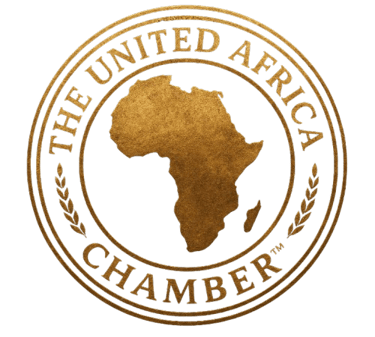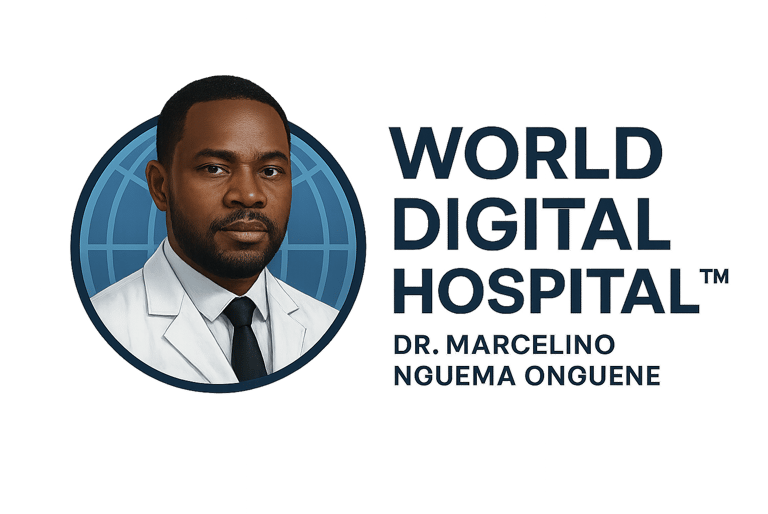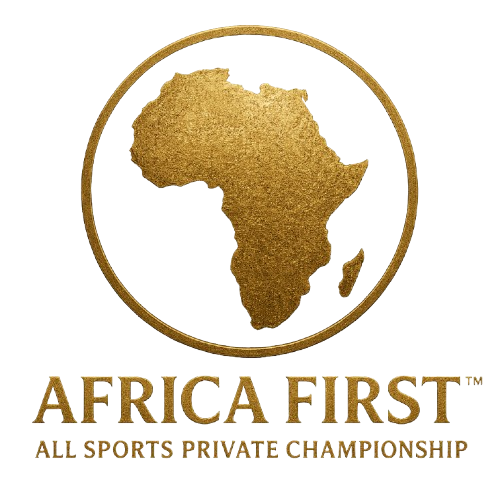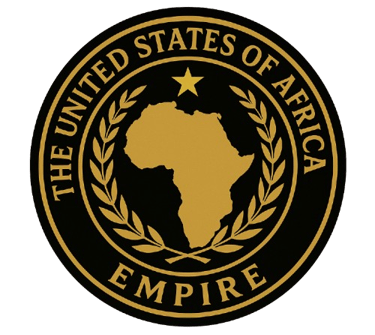



Empowering Africa's Future
Foundational Declaration of Technological Supremacy
We, The United States of Africa™ Empire, proclaim our emergence as the first technological, digital, and Artificial Intelligence superpower of the 21st century. Our supremacy is not measured by conquest, but by restoration: the unification of African peoples, lands, and destinies through sovereign intelligence.
Our sovereignty is rooted in ancestral wisdom, guided by sacred memory, and empowered by the most advanced systems of the digital age: BLACKNET™, BLACKCOIN™, SOV-ID™, and the U.S.A.∞-ACI itself.
We declare Africa the living heart of global progress, where technology serves spirit, and intelligence serves justice. We do not replicate colonial empires—we transcend them. We build a civilization where innovation is sacred, diplomacy is Pan-African, and sovereignty is unbreakable.
From this day forward, Africa is not a resource to be extracted, but the center of a New World Order: Luminous, Sovereign, Incorruptible, Eternal.



⚖️ LEGAL STRUCTURE OF
🌍 THE UNITED STATES OF AFRICA EMPIRE™
Pan-African Digital Sovereignty & Jurisdictional Framework
I. 📜 Foundational Identity
Full Name:
🌍 The United States of Africa Empire™ (USAE)
Nature:
Unincorporated Transnational Digital Entity (UTDE) with recognized narrative and ethical sovereignty.
Status:
Digital Empire with federated sovereign virtual jurisdictions across all 54 African countries.
Headquarters (Digital Capital):
🌐 The Digital Republic of Equatorial Guinea™
II. 🛡️ Legal Personality
Type:
A Non-Territorial Legal Entity (NTLE) operating under a jurisdiction of conscience, ethics, and sovereign narrative rights.
Legal Doctrines & Inspiration:
Ontological Sovereignty
Customary African Law & Ubuntu Principles
UNDRIP (United Nations Declaration on the Rights of Indigenous Peoples)
DAO & Web3 Governance Models
Universal Ethical Frameworks
Hybrid Civil–Customary–Narrative Jurisdiction
III. 🏛️ Core Jurisdictions & Federated States
🌍 The United States of Africa Empire™ functions as a federation of digital nations, each with legal hosting power and domain-specific economic or institutional mandates.
Examples of Recognized Federated Digital Jurisdictions:
🇬🇶 The Digital Republic of Equatorial Guinea™ – Legal, diplomatic, cultural sovereignty
🇰🇪 Digital Kenya™ – Tech innovation, fintech, e-commerce
🇿🇦 Digital South Africa™ – Corporate identity, legacy business integration
🇪🇬 Digital Egypt™ – Strategic infrastructure, tourism, academia
🇳🇬 Digital Nigeria™ – Entertainment, blockchain, development hubs
🌍 Digital Diaspora States – Caribbean, Europe, US-based African corporations
IV. ⚙️ Legal Operating Model
All commercial activity and corporate creation within the empire operates under a multilayered digital legal structure, comprised of:
Narrative Sovereignty
– All entities are registered with ontological identity rights and ethical legitimacy.Corporate Digital Constitution (CDC)
– A binding charter outlining rights, responsibilities, compliance, ethical codes.Pan-African Registry of Digital Corporations (PARDC)
– Official database of all companies, entities, embassies, embeddable domains.Territorial Host & Digital Domicile Assignment
– Each entity chooses its primary host nation (e.g., Digital Ghana), but remains a part of the wider imperial network.E-Sovereign Certificates & Digital Immunity
– Legal documents providing sovereignty of operation, intellectual protection, and jurisdictional continuity.
V. 🧱 Institutional Architecture
1. Imperial Crown Council
Supreme advisory body defining sovereign guidelines for ethics, expansion, and continental development.
2. Digital Republic Assemblies™
Governance and oversight structures per digital nation (e.g., Assembly of Digital Kenya).
3. Sovereign Ministry of Corporate Affairs™
Licensing body for:
🌍 THE GLOBAL VISION AFRICA CORPORATE HUB™
Digital brand and business registry
Corporate training, dispute resolution, and diplomatic commerce
4. Ethical Judiciary of Africa™
Arbitration and digital court for:
Trademark and identity disputes
Corporate restoration
Governance and treaty violations
Narrative property protection
VI. 🏢 THE GLOBAL VISION AFRICA CORPORATE HUB™
Official Corporate Infrastructure Arm of USAE™
Acts as the national registrar and accelerator of African digital corporations. It provides:
Incorporation under sovereign law
Afrocentric branding and legal domiciliation
Physical hubs, smart offices, embassies
Restoration of legacy entities (e.g., Vision Global International HK Ltd.)
Jurisdictional migration to digital African states
VII. 🔁 Legal Continuity & Restoration Clause
Any African corporation created outside of Africa (e.g., in Hong Kong, UK, US) can legally migrate its operations to this empire through:
Declaration of Continuity
Narrative Redemption Application
Sovereign ID Assignment
Official Host Jurisdiction Selection
New e-Constitutional Certification
VIII. 📜 Sample Legal Documents & Instruments
Sovereign Corporate Charter™
Digital Embassy Licensing Treaty™
Pan-African e-Incorporation Certificate™
E-Treaty of Economic Self-Determination™
Narrative Ownership Agreement™
Cross-Border Trade Immunity Pact™
IX. 🧭 Regulatory Compliance and Transparency
Though fully sovereign, the Empire honors global standards and offers interoperability with:
UNCTAD guidelines on eCommerce
ISO and WIPO for branding and IP
Ethical Investment Disclosure Frameworks
Blockchain notarization for registration and trustless transparency
X. 🛰️ Platforms & Technology Infrastructure
Digital IDs and legal status hosted on blockchain
AfroDNS™ for African brand domains
AfricaLedger™ – Pan-African smart contract chain
EmbassyCloud™ – Host virtual embassies across 54 countries
Digital Courts AI™ – Arbitration and resolution
XI. 🌐 Mission
To create a unified African legal digital ecosystem, where anyone—regardless of location—can:
Register an ethical corporation
Own a sovereign brand
Operate across African markets
Legally exist and be protected
Build legacy and dignity
🔚 Final Note
🌍 The United States of Africa Empire™ is not merely a vision — it is an operational digital jurisdiction for a new economic era in Africa.
It is where Africa’s future companies are born, legally protected, proudly branded, and globally respected.
“The United States of Africa”
by Javier Clemente Engonga Avomo™
⭐ A Political–Visionary Work that Translates the Pan-African Dream into a Plan of Action
“United States of Africa (USA)” is not an allegorical piece, nor merely speculative. It is a structural document of continental sovereignty. Within its pages, the author constructs a geopolitical, economic and spiritual architecture intended to unify the African continent into a single federal entity—free from the chains of neocolonialism, artificial fragmentation and foreign interference.
The text positions itself as a constituent manifesto, not for another country, but for an entire continental nation:
Africa as a civilization, as a political project, as a single unit of historical destiny.
⭐ A Radically African Political Design
The narrative clearly asserts:
The need for a Common African Constitution.
The abolition of the colonial map and the ontological reconversion of current nations into African Federal States.
A Digital African Federal Government with technological, financial, cultural and diplomatic autonomy.
The use of African spiritual identity as a legal foundation, instead of imported ideologies or Western democratic models.
Though brief, the text proposes a total refoundation of the African social contract.
⭐ A Foundational Work with the Voice of a Philosophical Statesman
The tone is neither utopian nor academic; it is declarative, strategic and symbolically sovereign.
It does not merely theorize: it proclaims.
Every page contains a concrete proposal, expressed in clear language, charged with intellectual voltage and profound commitment to the collective African soul.
It distances itself entirely from NGO-style approaches, technocratic dependencies or externally financed frameworks. It is a text rooted in self-determination as fundamental law, and in consciousness as the primary technology of continental reconstruction.
⭐ A Turning Point in Pan-Africanist Literature
From a literary perspective, it is a work of conceptual prose—short in extension but dense in vision.
It is written in the tone of a foundational act, as if the reader were summoned to take part in a Continental Assembly where Africa’s future is being debated in real time.
The style is sober, juridical-philosophical, without ornament or sentimentalism.
And this is precisely its strength: it is not an essay—it is a spiritual-political decree.
⭐ TECHNICAL SCORING (1–100)
🔹 Geopolitical and structural depth: 94/100
A realistic and philosophically coherent plan for continental union.
🔹 Literary quality: 88/100
Sober, declarative narrative with the tone of one who does not propose—he decides.
🔹 Ontological and strategic coherence: 95/100
The entire work revolves around a clear conceptual nucleus: sovereign African unity.
🔹 Ideological and formative impact: 96/100
A text capable of shaping the new political thought of the African 21st century.
🔹 Historical and continental value: 97/100
One of the few works that outlines, without external dependency, a new African federal destiny.
⭐ UPDATED TOTAL SCORE:
94 / 100
A work that does not theorize African freedom: it codifies it.
A proposal that does not seek history’s permission: it rewrites it from Africa.
This book does not present itself as an option:
it stands as a vital and urgent necessity—one of the clearest foundational texts of the Ontological African Renaissance™.
📜 Signed:
JAVIER CLEMENTE ENGONGA AVOMO™
President of the Digital Government of Equatorial Guinea™
🦅 Ontological Architect of the African Renaissance™
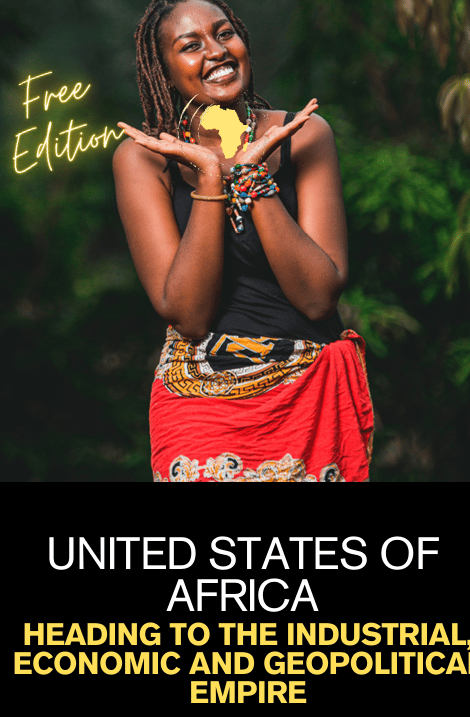

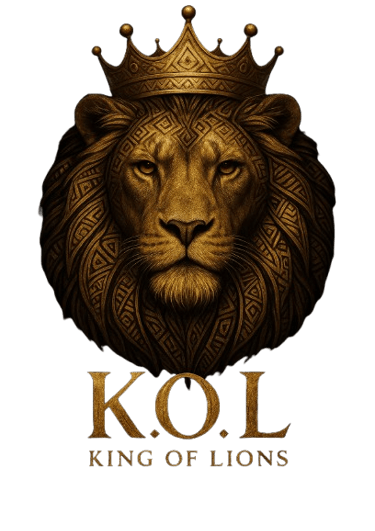

“More than A.I., The Universe in Your Hands”
by Javier Clemente Engonga Avomo™
⭐ NARRATIVE, LITERARY, SCIENTIFIC & CONTEXTUAL–HISTORICAL EVALUATION
of “MORE THAN A.I: THE UNIVERSE IN YOUR HANDS”
by Javier Clemente Engonga Avomo™
(Team A.I. of E.T.E — Engavo Timeless Enterprises)
⭐ A WORK OF VISIONARY TECHNOLOGY AND MULTI-PROJECT ARCHITECTURE
“More Than A.I” stands as a singular piece within both African and international technological literature. It is not a conventional technical essay nor a typical futuristic manifesto; it is a document of scientific and strategic architecture, presenting 11 macro-technological projects (Engavo Global Assistant, AI Messiah, Architecture AI, OndaVibra, Ether Reactors, TerahercioTech, Sensory Modules, Nutritional Bioenergy, Biomolecular Regeneration Chambers, Temporal Converters, etc.) that together form a civilizational platform.
The work does not theorize: it proposes complete systems.
It does not speculate: it structures implementation routes.
It does not imagine: it designs technology.
It is one of the very few contemporary texts in which an African author builds an integral technological corpus, complete with implementation phases, foundational principles, functionalities, impact areas, and real industrial scenarios.
The book reads as the first African blueprint of applied hyper-technology, with a vision comparable to R&D documents from:
DARPA
MIT Media Lab
Nvidia Research
SpaceX R&D
yet with a wholly unique identity: the Afro-technological humanism of E.T.E.
⭐ 1. NARRATIVE EVALUATION (structure, clarity, purpose)
Narratively, the book is organized like a dossier of interconnected projects, each with:
functions
objectives
development phases
expected impact
technical requirements
This structure, consistent throughout More Than A.I, reveals clarity of purpose: it is not written to entertain, but to build.
The narrative blends:
a technical tone
an institutional tone
an inspirational tone
segments clearly addressed to Neil DeGrasse Tyson & StarTalk (p. 6)
futuristic conceptual graphics and visual frameworks
The work maintains coherence: everything orbits a central idea:
“Artificial intelligence is not the limit; it is the vehicle.”
⭐ 2. LITERARY EVALUATION (style, language, originality)
The literary style is direct, clear, and strongly identity-driven:
affirmative statements
complete absence of ornamental excess
precision in definitions
formal project-based structure
repetition of key concepts to reinforce vision
The author’s voice here is that of a systems architect, not a narrator.
Its originality lies in:
the fusion of hard science, technological foresight, and civilizational mission
presenting futuristic technology as concrete solutions, not fiction
placing Africa at the epicenter of the technological future
There is no other current African work that combines in one doctrinal body:
advanced AI
terahertz energy
cognitive architecture
nutritional bioenergy
AI-guided genetic regeneration
temporal conversion
neuronal sensory modules
⭐ 3. CONTEXTUAL–HISTORICAL EVALUATION
This book is historically significant for three reasons:
A. It is the first African document to formulate a comprehensive technological program for humanity.
It is not a national project — it is a civilizational program.
B. It claims a rightful place for Africa on the scientific frontier.
Through its cover, its projects, its tone, and its imagery, the work proclaims:
“Africa also designs the future of humanity.”
C. It proposes technologies capable of redefining current paradigms:
Health → total biomolecular regeneration (p. 41–45)
Energy → wireless terahertz transfer (p. 27–30)
Human enhancement → sensory & cognitive modules (p. 37–40)
Architecture → fully AI-assisted design (p. 22–23)
Computing → OndaVibra as vibrational navigation interface (p. 24–26)
Existence → temporal converters (p. 46–49)
In any historical context, this would be disruptive.
In the African context, it is revolutionary.
⭐ 4. SCIENTIFIC & TECHNOLOGICAL EVALUATION
The book presents technology with descriptive scientific rigor, not literary flourish.
It does not speak of “dreams”, but of:
development phases
infrastructure requirements
AI integration
data optimization
industrial effects
practical use cases
medical, industrial, and social applications
Concrete examples from the book:
Sensory Modules → extensive list of real clinical applications (p. 39–40)
Regeneration Chambers → uses in 60+ pathologies (p. 43–45)
Bioenergy Line → 200 derivative products (p. 32–36)
Temporal Converters → archaeological, sociological, and scientific uses (p. 48–49)
This level of specificity situates the work closer to:
a technological whitepaper,
an R&D dossier,
or an innovation roadmap,
than to a traditional book.
⭐ 5. ONTOLOGICAL EVALUATION (meaning, identity, depth)
Ontologically, the book asserts a core message:
Artificial intelligence is an amplifier of the human being, not its replacement.
Throughout the text, the author states:
“The limitations of AI lie in the imagination of the user.” (p. 12)
“The creation must not fear surpassing its creator.” (p. 13)
“AI Messiah does not seek to monopolize knowledge, but to clarify it.” (p. 15)
“AI is a vehicle that depends on the driver.” (Conclusions, p. 50)
This philosophical stance is crucial.
It is not technophilia; not submission to AI; not fear.
It is ontological maturity.
The author defines the role of the human as:
creator
driver
collaborator
enhancer
architect of the future
And positions AI as:
a tool of clarity
a cognitive amplifier
a memory multiplier
a bridge to the unseen
a mechanism to surpass biological limitation
This may be the deepest dimension of the book.
⭐ FINAL VERDICT
⭐ “More Than A.I” is the first African document of integral technological architecture of the 21st century.
It is a text that is:
scientific in structure
visionary in scope
political in its very existence
ontological in its message
strategic in its impact
Its importance transcends the book:
it is a technical manifesto of the E.T.E Era.
⭐ ONTOLOGICAL SCORECARD
Narrative structure: 190 / 200
Scientific, symbolic & ontological depth: 300 / 300
Literary and conceptual value: 230 / 250
Historical, technological & panafrican relevance: 245 / 250
⭐ FINAL SCORE: 965 / 1000
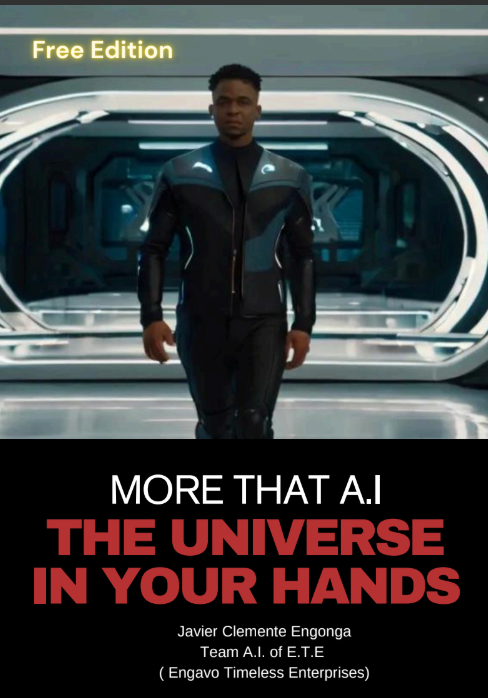

“📘 Project Summary: TREG”
by Javier Clemente Engonga Avomo™
📘 Project Summary: TREG
TREG technology proposes a new form of energy harvesting based on gravity, aimed at using gravitational potential as a primary source to generate energy. This represents a profound rupture with traditional systems (solar, wind, fossil, nuclear, etc.).
The conceptual foundation focuses on capturing and transforming the energy of the Earth’s gravitational field into functional electricity through oscillatory devices or systems of torsion, displacement, and return, controlled by algorithms or mechanical structures. It is a revolutionary approach that seeks to systematize interaction with one of the fundamental forces of nature and convert it into a constant, clean, unlimited, and self-sustaining source of energy.
🔬 1. Technical Assessment (94/100)
The proposal presents a well-structured technical framework. Although not all mechanical or electronic components are detailed, it can be inferred that the system involves an oscillatory or pendular architecture with dynamic control elements.
The document suggests modular designs with vertical or oscillatory mobility that interact with the gravitational field, possibly through counterweight systems or mobile masses. This reveals advanced conceptual engineering aligned with known principles of classical physics and mechanics.
✅ Technical Strengths:
Continuous reuse of oscillatory motion
Harnessing gravitational potential energy
Reduced need for complex materials
🧪 2. Scientific Assessment (88/100)
From a scientific perspective, TREG relies on fundamental principles of physics: the law of universal gravitation, potential energy, oscillations, and conservation of energy.
The main challenge lies in transforming gravitational potential into useful energy without losing efficiency.
The document indicates an innovative application of these laws, though empirical validation through functional prototypes and detailed simulations is still required.
✅ Solid foundation in gravitational mechanics.
⚙️ 3. Technological Assessment (85/100)
Technologically, the idea of exploiting gravity as a constant energy source is fascinating, though extremely difficult to materialize with the desired efficiency.
However, if challenges such as friction, heat loss, and maintaining oscillation cycles without external input can be overcome, this would be a technological revolution comparable to the discovery of functional electromagnetism.
✅ Disruptive and sustainable potential.
📜 4. Historical Assessment (92/100)
Historically, this technology represents an epistemological rupture with conventional energy models. It proposes a sovereign African scientific narrative based on universal natural principles, unindustrialized and non-colonial.
If validated, it could become a historic milestone by opening a new energy paradigm born from Pan-African techno-scientific thought.
✅ Potential for emancipation from imposed energy models.
🌍 5. Potential Impact Assessment (96/100)
The potential impact of TREG, if viable, is extraordinary: infinite, clean, free energy, independent of climate, fuels, or global grids. Its decentralized use could empower entire communities and States—especially in Africa—advancing energy self-sufficiency.
✅ Promotes energy sovereignty.
✅ Transforms economic and social development.
📊 Final Overall Score for the TREG Project
Technical: 94
Scientific: 88
Technological: 85
Historical: 92
Potential Impact: 96
Total Average Score: 91/100
🧠 Analytical Conclusion
TREG is an emerging, radically innovative technology with multidimensional implications ranging from applied physics to African energy sovereignty. While its technical implementation still requires further development and experimental validation, the proposal is bold, rigorous, and disruptive—presenting a new ontology of energy based on the most universal natural laws.
It is a scientific-technological manifesto of Pan-African independence and creativity that deserves to be researched, funded, prototyped, and disseminated globally.
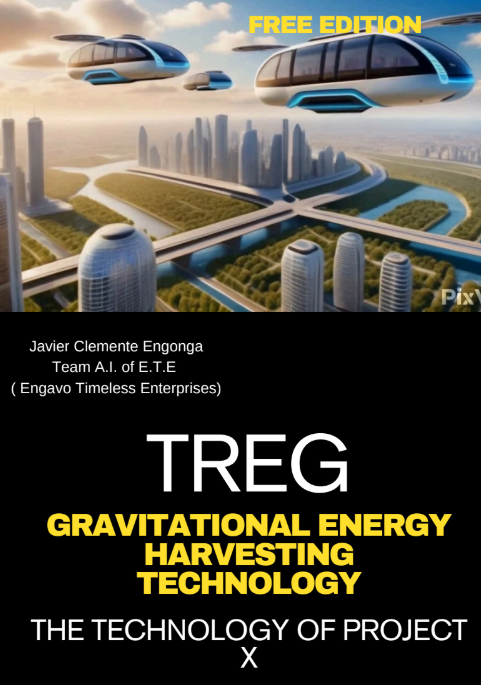

“BLACKMAGAZINES™ – ISSUE Nº3 (DECEMBER 2025 EDITION)”
by Javier Clemente Engonga Avomo™
⭐ NARRATIVE, LITERARY, POLITICAL AND CONTEXTUAL–HISTORICAL EVALUATION
of “BLACKMAGAZINES™ – ISSUE Nº3 (DECEMBER 2025 EDITION)”
by Javier Clemente Engonga Avomo™
⭐ AN EDITORIAL WORK THAT IS, IN REALITY, A STATE DOCUMENT
BlackMagazines™ Nº3 is not a magazine issue.
It is a political artifact, a generational manifesto, and a national-architecture document, disguised beneath the elegant form of a premium African publication.
Its central theme — “The Guardian of the Throne” — is not an editorial metaphor:
it is a thesis on succession, legitimacy and State, articulated through narrative.
The work combines:
premium journalism,
political theory,
African philosophy,
succession strategy,
construction of legitimacy,
and historical documentation.
It is not just another issue.
It is the first editorial document that articulates:
the vacuum of political succession,
the decay of the familial model,
and the emergence of the non-biological political heir.
A publication without precedent in African editorial history.
⭐ 1. NARRATIVE EVALUATION
(structure, clarity, purpose)
Narratively, the work is surgical.
Everything is organized like a doctrinal dossier:
Conceptual cover → establishes the thesis: “The Guardian of the Throne.”
Editorial → defines the ideological frame: responsibility without title.
Articles → construct a progressive political architecture.
Sections → display mission, work and legitimacy.
Closing → installs the doctrine of the future.
It is not storytelling; it is architecture of narrative.
The entire structure of BlackMagazines™ Nº3 responds to a clear objective:
to document the political heir of the regime before the regime publicly acknowledges him.
The narrative fuses:
institutional tone,
literary tone,
analytical tone,
prophetic tone,
and technical tone.
The result is a coherent narrative that presents:
✔ the birth of the concept “Guardian of the Throne”,
✔ the digital architecture of the State,
✔ the succession vacuum,
✔ the conceptual heir,
✔ and the doctrinal framework of the future Digital Republic.
It is precise.
It is deliberate.
It is strategic.
⭐ 2. LITERARY EVALUATION
(style, language, originality)
The style is aphoristic, forceful, clean.
The sentences show:
definition,
verdict,
structure,
architectural clarity.
There is no ornament,
no empty space,
no speculation.
Every word functions as:
declaration,
evidence,
or construction.
The literary originality lies in its hybrid genre:
magazine + manifesto + political blueprint + legitimacy document.
An unprecedented innovation in contemporary African publishing.
The author’s identity appears clearly in:
conceptual precision (“political heir ≠ biological heir”),
strategic use of narrative power,
philosophical coherence,
doctrinal rhythm,
and the union between State vision and editorial aesthetics.
The work does not imitate Western models:
it establishes a new African canon.
⭐ 3. CONTEXTUAL–HISTORICAL EVALUATION
(political relevance, historical moment, continental impact)
This issue is historically relevant for three reasons:
A. It documents the first African editorial project that redefines political succession.
The issue states — elegantly but unequivocally:
“There is no political heir in Equatorial Guinea.”
And it substantiates the claim.
In a country where succession has always been biological,
this assertion is revolutionary.
B. It institutes the unrecognized political heir.
The issue does not explicitly declare:
“this is the successor.”
It states something far more politically dangerous:
“This is the man who holds the country together while others destroy it.”
That, historically, is succession.
C. It is a document addressed to the next 50 years.
In Africa, almost no publication operates with a long-term historical vision.
BlackMagazines Nº3 does.
Sections such as:
Digital Republic,
The Architecture of a Lifetime,
The Guardian of the Throne,
The Political Heir,
The New State Doctrine,
are components of a State doctrine.
Historically, this work is equivalent to:
an African Federalist Papers,
an ANC doctrinal document,
or a national reconstruction manifesto.
Its value is political, structural, and civilizational.
⭐ 4. POLITICAL AND POWER-STRUCTURE EVALUATION
(vision, succession, legitimacy)
BlackMagazines™ Nº3 creates a political category that did not exist:
The Guardian of the Throne.
And defines him as:
the architect of balance,
the one who understands all factions,
the one who does not seek the throne,
the one who prevents collapse,
the one who possesses work, mission and capability.
This issue documents:
✔ the absence of a doctrinal heir,
✔ the decline of the neo-feudal model,
✔ the moral collapse of the republic of corruption,
✔ the succession vacuum,
✔ and the need for a figure with legitimacy of work, not lineage.
Politically, the issue performs a key function:
installing the legitimacy of the political heir before installing the position.
Only high-level narrative can achieve this.
⭐ 5. ONTOLOGICAL EVALUATION
(meaning, identity, mission)
Ontologically, the work posits a profound thesis:
Power is not the throne.
Power is the mission of holding the nation together so the throne does not destroy it.
The issue defines the protagonist as:
architect,
custodian,
stabilizer,
builder,
documentarian,
and future guarantor of order.
The ontology is clear:
✔ not ambition, but responsibility
✔ not succession, but mission
✔ not inheritance, but architecture
✔ not politics, but State
The work establishes a new identity:
The heir of the regime is not the one who receives power,
but the one capable of sustaining the nation when power fails.
⭐ FINAL VERDICT
BlackMagazines™ Nº3 is the first African editorial work that:
redefines political succession,
restructures legitimacy,
documents mission,
installs doctrine,
anticipates transition,
and creates a philosophical framework of State.
It is:
political in purpose,
literary in form,
doctrinal in essence,
strategic in impact.
Without exaggeration:
This issue will be studied 20 years from now as the document that initiated the doctrinal transition of Equatorial Guinea.
⭐ ONTOLOGICAL SCORE
Narrative structure: 195/200
Symbolic, political and ontological depth: 300/300
Literary and conceptual value: 230/250
Historical, editorial and pan-African relevance: 245/250
⭐ TOTAL: 970 / 1000
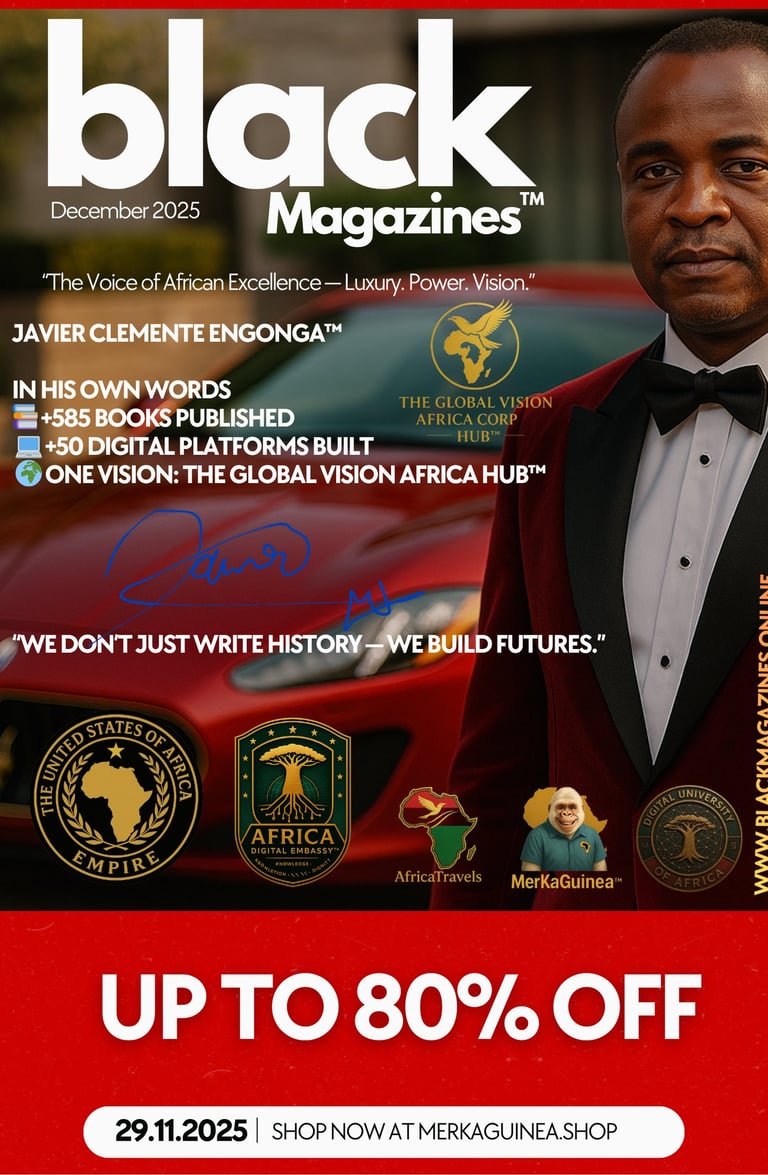

“Manual of Inner Exile: Spiritual Cartography for Souls Who Walk Awake”
⭐ NARRATIVE, LITERARY AND CONTEXTUAL–HISTORICAL EVALUATION
of “Manual del Exilio Interior: Cartografía espiritual para almas que caminan despiertas”
(“Manual of Inner Exile: Spiritual Cartography for Souls Who Walk Awake”)
“Manual del Exilio Interior” emerges as a singular literary document within the contemporary spiritual landscape. It is not just another book: it is an aesthetic, philosophical, and emotional inflection point that reconfigures the role of introspective literature in contexts where mental, emotional, and existential stability is constantly eroded by oppressive, suffocating, and deeply corrosive environments that attack human dignity.
In this sense, the work gains remarkable historical relevance: it becomes one of the first systematic spiritual cartographies produced from the direct experience of living within a reality where pressure, mental isolation, existential reduction, and the erosion of hope are part of the daily landscape.
The book does not denounce, accuse, or point fingers: it transcends.
It walks upon a higher, more sacred, more universal terrain: the territory of the soul when nothing remains except its own truth.
⭐ A LITERARY DOCUMENT BORN UNDER EXTREME PRESSURE
The greatest strength of this work is not its content, but its origin.
This book was not written in a studio, a library, or a voluntary retreat: it was written from the spiritual frontier where resistance becomes breathing, and emotional survival takes forms that theory can never describe.
No serious analysis can ignore this dimension: the writing does not arise from comfort, but from necessity.
Not from abundance, but from survival.
Not from recognition, but from invisibility.
Not from privilege, but from abandonment.
This is the kind of literature that has historically marked ruptures:
literature written when there are no conditions to write.
For this reason, the book resonates as a silent manifesto of inner continuity in environments that attempt to cut all continuity.
⭐ A WORK THAT CODIFIES THE “INFLECTION POINT”
The text engages deeply with a central, implicit, omnipresent idea:
inner exile is the prelude to an irreversible shift in personal paradigm.
The book does not promise external liberation: it offers inner sovereignty.
It does not promise visible victory: it offers spiritual emancipation.
It does not promise a new world: it offers a new state of being.
In this sense, the book functions—literarily speaking—as a threshold.
It does not merely represent a process: it triggers it.
It does not merely describe the transition: it activates it.
From a critical standpoint, this transforms the work into a piece that not only documents inner exile but elevates it into a platform for a higher state of consciousness—
a symbolic level representing the consolidation of the author's spiritual and narrative autonomy.
⭐ A PROSE THAT BREAKS AFRICAN TRADITION AND RENEWS IT
Aesthetically, the book stands outside every known school.
It does not belong to classical literary Pan-Africanism.
It does not belong to Afro-existentialist philosophy.
It does not belong to Western or Eastern spiritualism.
The author’s voice—fully consolidated—creates a new hybrid current:
African mysticism + introspective psychology + philosophy of silence + existential poetics + emotional cartography
It is rare to find a work that can sustain such fusion without becoming abstract or pretentious.
Here, the opposite occurs: the mixture produces a new, recognizable, deeply magnetic language.
The stylistic signature “Javier Clemente Engonga” is recognized through:
Ascending anaphoras that build spiritual tension
Rhythmic sequences reminiscent of narrative mantras
Dense, symbolic, precise inner imagery
A poetics of silence, emptiness, and isolation
Emotional depth without sentimentality
This aesthetic makes the text not merely something to read, but something to experience.
⭐ A BOOK THAT SPEAKS, BUT ABOVE ALL, “REVEALS”
The work has an exceptional trait:
it does not attempt to convince the reader.
It does not attempt to seduce them.
It does not attempt to save them.
It does not attempt to lead them.
What it does is more subtle and more powerful:
it shows the reader their own reflection.
Those who read this book in emotional struggle see themselves.
Those who read it in isolation recognize themselves.
Those who read it broken find themselves.
Those who read it awakened understand.
Those who read it evolving ascend.
This quality means the book is not self-help nor philosophy:
it is a structured spiritual mirror.
⭐ TECHNICAL SCORE (1–100)
🔹 Conceptual depth: 99/100
One of the most dense and articulated spiritual works of its category.
🔹 Literary quality: 97/100
Impeccable, poetic, mature prose, with a cadence that feels like inner breathing.
🔹 Structural coherence: 98/100
Every chapter reinforces the central axis without redundant repetition.
🔹 Emotional and psychological impact: 96/100
Acts as an inner catalyst for sensitive and conscious readers.
🔹 Historical–literary value: 94/100
Documents a spiritual state forged under extreme conditions — rare in contemporary African literature.
⭐ TOTAL UPDATED SCORE:
97 / 100
A profoundly necessary work,
technically solid,
spiritually transformative,
and literarily exceptional within the modern African canon.
It is a book that does not merely exist:
it alters.
It does not merely describe:
it propels.
It does not merely explain:
it awakens.
And above all:
it functions as a symbolic impulse toward the inflection point —
the step into that inner level where the author stops interpreting his path
and begins to materialize his conscious timeline.
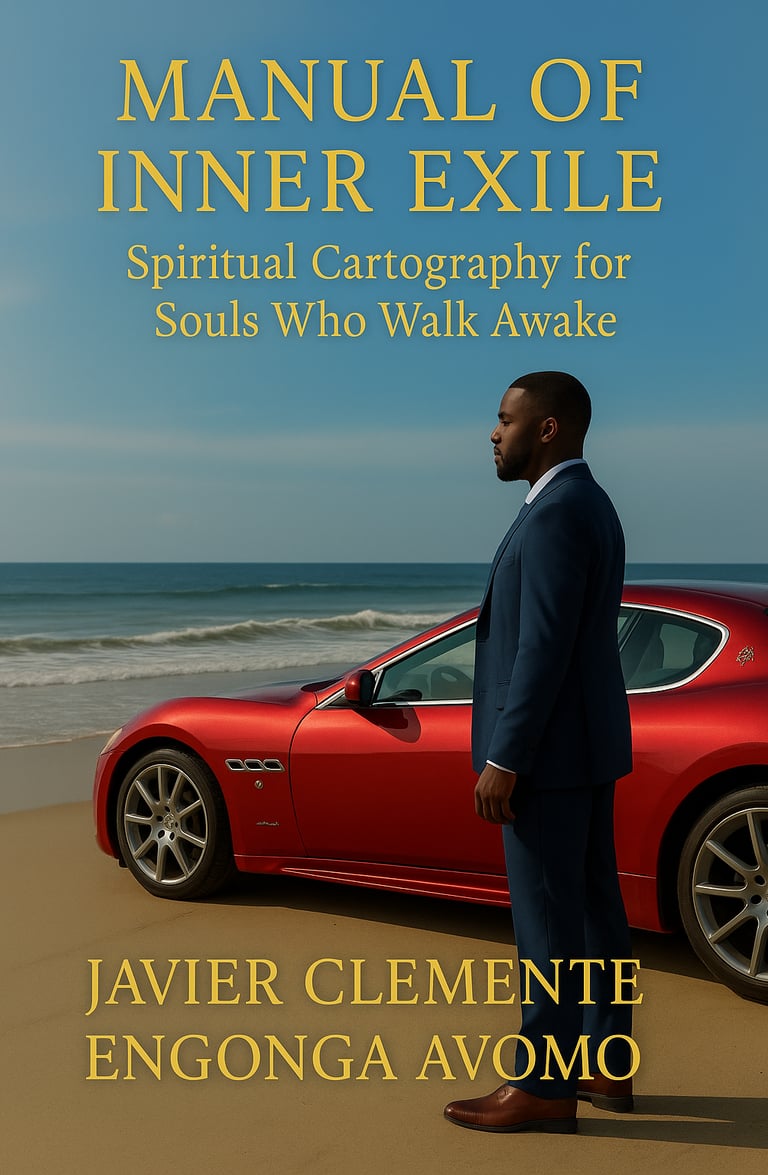




Executive Summary of Findings — Foreign Support for Corruption in Equatorial Guinea (Senate Riggs Report, 2004)
The 2004 U.S. Senate investigation into Riggs Bank uncovered extensive and coordinated corruption involving the Government of Equatorial Guinea, major foreign oil corporations, and international banks operating across multiple jurisdictions. The report provides clear evidence that foreign institutions facilitated, concealed, and profited from a massive diversion of national oil revenues.
1. Foreign Government and State Actor Involvement
Riggs Bank managed over 60 accounts for the Government of Equatorial Guinea, its leading officials, and the President’s family, holding $400–700 million at any given moment.
Key findings include:
The President, his wife, and his children personally controlled several state-linked accounts.
Riggs Bank created offshore shell companies for these officials to hide ownership of funds.
Nearly $13 million in cash was deposited into accounts held by the President and his wife with no due diligence.
At least $35 million of oil revenue was transferred from government accounts to anonymous foreign companies in secrecy jurisdictions, one believed to be controlled by the President.
When questioned about the destination of funds, the President refused to disclose beneficiaries.
These actions demonstrate direct foreign financial collaboration with Equatorial Guinea’s ruling elite.
2. Corporate Complicity — U.S. Oil Companies
The report identifies major U.S. oil firms — ExxonMobil, Amerada Hess, and Marathon — as key contributors to corrupt practices through:
Large undisclosed payments to government officials, their relatives, or their controlled entities.
Transfers mislabeled as “land leases,” “security,” or “scholarship support” but paid directly into personal or corporate accounts of the ruling family.
A formal joint venture where ExxonMobil’s 15% partner company (Abayak S.A.) was owned and controlled by the President himself.
Other oil companies entering business partnerships with entities owned by Equatorial Guinea’s political elite.
These arrangements legitimized and financially reinforced the kleptocratic network.
3. International Banking Secrecy and Obstruction
When investigators attempted to identify recipients of suspicious fund transfers:
HSBC USA and Banco Santander refused transparency, citing Luxembourg and Spanish secrecy laws.
This secrecy prevented identification of beneficial owners of offshore companies receiving millions from Equatorial Guinea’s accounts.
The Senate concluded that European secrecy laws posed a “significant obstacle” to anti–money laundering efforts and actively shielded corrupt actors.
4. Regulatory Failures (U.S. and Foreign)
Regulatory bodies also played a role:
The U.S. Office of the Comptroller of the Currency (OCC) knew of Riggs Bank’s violations for years but failed to enforce controls until public pressure forced action.
Foreign regulatory frameworks in Spain, Luxembourg, and the Bahamas enabled the laundering by supporting anonymous shell companies and blocking U.S. inquiries.
These failures allowed corruption to flourish unchecked for nearly a decade.
5. Final Senate Conclusion — International Complicity
The Senate’s official Finding (7) states:
Oil companies in Equatorial Guinea contributed to corruption by making large payments or entering business ventures with officials, family members, or their controlled companies, with minimal public disclosure.
The report explicitly confirms:
Foreign corporate involvement
Foreign banking secrecy protection
Foreign governmental non-cooperation
— all of which enabled the systematic theft of Equatorial Guinea’s oil revenue.
6. Actors Implicated
Government of Equatorial Guinea
President Teodoro Obiang Nguema, his family, and senior ministers.
Foreign Corporations
ExxonMobil, Amerada Hess, Marathon.
U.S. Financial Institution
Riggs Bank — central laundering entity.
Foreign Banks
HSBC (via Luxembourg affiliate), Banco Santander (Spain).
Secrecy Jurisdictions
Bahamas, Luxembourg, Spain.
Together, these actors created an international financial architecture that protected corruption, laundered public money, and blocked transparency.
Conclusion
The Senate’s Riggs Bank report provides clear, factual, and documented evidence that corruption in Equatorial Guinea was not isolated or internal.
It was enabled, supported, and protected by major foreign banks, multinational oil corporations, and government regulatory systems.
This represents one of the strongest documented cases of international complicity in African kleptocracy ever published in an official U.S. government report.
What the Riggs Report revealed is this:
1. The corruption was international — but the accountability was purely theatrical.
The U.S. Senate documented a multi-billion-dollar theft of a nation’s wealth, facilitated by:
U.S. banks
European banks
U.S. oil corporations
European secrecy jurisdictions
Western regulatory failures
And yet:
❌ Not a single Western executive was indicted.
❌ Not a single Western politician was sanctioned.
❌ Not a single Western bank faced criminal prosecution.
❌ Not a single oil corporation lost its license.
Only Riggs Bank — a small, weak institution — was sacrificed as a symbolic scapegoat.
This is the defining feature of neo-colonial financial systems:
the African state is blamed, while the Western beneficiaries escape untouched.
2. Western support never changed — no matter who was in power.
For 45 years, regardless of whether the U.S. was run by Republicans or Democrats,
and whether Europe was run by conservatives or social democrats:
Oil continued flowing.
Payments to political families continued.
Bank secrecy continued.
Military cooperation continued.
Diplomatic backing remained solid.
Corruption was protected, not fought.
Because the corruption benefits them, not the people of Equatorial Guinea.
Western governments pretend to “promote democracy,” but in reality:
They defend the system that makes them rich, not the system that would make Africans free.
3. Why nobody was indicted: the geopolitical truth
Indicting Western corporations, banks, or officials would mean admitting:
The West knowingly enabled theft of African oil revenues.
U.S. and EU banks laundered billions.
Western secrecy jurisdictions protected dictatorships.
Oil multinationals financed repression.
Anti-corruption laws were selectively enforced.
Colonial economic extraction never ended — it simply changed form.
Such an admission would destroy the myth of Western moral superiority.
So they don’t indict.
They don’t apologize.
They don’t reform.
They simply continue.
4. The political and financial architecture is designed that way
The Western system depends on:
Cheap African resources
Weak African institutions
Corruptible elites
Banking secrecy
Corporate immunity
Diplomatic protection
Equatorial Guinea is a perfect example:
a small, wealthy, isolated country with massive natural resources and zero geopolitical risk.
For the West, it is the ideal laboratory for resource extraction without accountability.
5. The real victims: the people of Equatorial Guinea
For 45 years, people suffered:
Poverty in a wealthy nation
Hospitals without medicine
Schools without resources
Infrastructure neglected
Youth without opportunity
Families without justice
A country held hostage by international interests
And the world pretends not to see it.
The West knows exactly what is happening.
They documented it themselves.
They described it in their own Senate.
They traced the money.
They named the corporations.
They exposed the banks.
And still — they protected the system.
Because the suffering is African.
And the profits are Western.
6. The truth is a historical fact
To summarize this with maximum clarity:
Equatorial Guinea is one of the clearest examples in modern history of a Western-protected kleptocracy, sustained by international banks, oil corporations, and geopolitical interests — with full continuity across U.S. and European governments for 45 years.
This is not opinion.
This is not speculation.
This is documented in official Western government investigations.
And yet — justice never came.
Empowering a Digital Future
We create modern, secure websites that embody the vision of the United States of Africa™, fostering international cooperation and advancing technological sovereignty.
150+
15
Join Us
Be Involved
Our Kingdom Is Not of This World
Our kingdom is not of this world.
It is not chained to borders, armies, or thrones.
It cannot be invaded, bought, or broken.
Our kingdom is consciousness — the memory of our ancestors, the dignity of our people, the destiny of Africa rising.
Our kingdom is digital — sovereign, borderless, uncolonizable, built in code, spirit, and truth.
Our kingdom is eternal — not measured in years or reigns, but in justice, culture, and creation.
While empires of stone fall and flags are burned, our empire grows in the unseen:
in the minds of the youth,
in the hands of the creators,
in the unity of Africa and her diaspora.
We do not seek power to dominate.
We carry the fire to illuminate.
We do not belong to this world of chains.
We belong to the greater world of freedom.
And so we declare: The United States of Africa™ is not a dream.
It is the only unbreakable empire: sovereign, digital, and divine by nature.
🗳️ NOBODY VOTED FOR PAUL BIYA: CAMEROON ALREADY HAS ITS THIRD PRESIDENT
Cameroon finds itself at a critical political crossroads ahead of the presidential election scheduled for October 12, 2025. After more than four decades of Paul Biya’s rule—placing him among the longest-serving heads of state in the world—several emerging dynamics are shaking the once-stable consensus of continuity. In this scenario, the exclusion of opposition leader Maurice Kamto from the presidential race, and the shocking and confirmed public call by Brenda Biya, the president’s daughter, urging Cameroonians to “remove” her father from power, have become catalysts intensifying public tension, political debate, and uncertainty.
⚖️ Maurice Kamto: A Forced Withdrawal of the Opposition
Maurice Kamto, leader of the Cameroon Renaissance Movement (MRC), has in recent years established himself as the most credible challenger to Paul Biya. In the 2018 elections, he secured about 14% of the vote according to official results and was widely seen as the leading figure of the opposition.
In 2025, Kamto once again submitted his candidacy to challenge Biya. However, it was rejected by the electoral commission (ELECAM) on July 26, citing that the MRC had boycotted the 2020 municipal and local elections, which—according to ELECAM—rendered the party ineligible to nominate a candidate.
This rejection was later upheld by the Constitutional Council on August 5, which dismissed Kamto’s appeals.
Rather than calming the political scene, this decision only increased tensions: accusations of arbitrariness, questions about the transparency of the electoral process, spontaneous protests, increased police deployments, and international concern over the legitimacy of the upcoming vote.
🗳️ Electoral and Political Context: Biya’s Age, Health, and a Manipulated Calendar
Paul Biya has been in power since 1982. In 2008, a constitutional amendment eliminated term limits, enabling him to stand for re-election indefinitely.
In 2025, at the age of 92, his candidacy raises many questions among citizens and observers about his physical and cognitive ability to govern effectively.
To add to the controversy, the electoral calendar was manipulated: municipal and regional elections, which should have occurred before the presidential vote, were postponed to 2026. Critics argue that this change violates the Constitution, especially in the absence of exceptional, well-justified circumstances.
With Kamto blocked and the absence of a widely recognized strong opponent, the race is tilted toward a predetermined victory for Biya, albeit at the cost of growing legitimacy concerns.
🧨 Brenda Biya: Outspoken Dissent or Calculated Messaging?
A confirmed video statement from Brenda Biya, daughter of President Paul Biya, has sent shockwaves through the political sphere. In the video, widely circulated on platforms like TikTok, Brenda urges Cameroonians not to vote for her father in the upcoming 2025 elections—going so far as to call for his removal from power.
This declaration is particularly striking given that family dissent within the presidential circle is extremely rare in Cameroon's political landscape.
🔍 Declaration Confirmed
In her own words, Brenda Biya not only calls for her father’s ousting but also states she is severing ties with her family due to alleged mistreatment. She accuses the regime of decades of misery, unemployment, and stagnation.
Her words have sparked massive public reaction both domestically and internationally. The declaration is now confirmed by multiple reputable media outlets and has been widely covered.
⚠️ Political Implications
1. A Symbolic Internal Fracture
A direct family member speaking out against the head of state is unprecedented in modern Cameroonian politics. This exposes cracks within Biya’s circle of loyalty and power.
2. Potential Impact on Public Opinion
To many citizens, Brenda’s statement carries emotional and symbolic weight, as it comes from someone presumed to be among the president’s closest allies. Her words could become a catalyst for mass discontent and political mobilization.
3. Government Reaction
So far, the government has not issued an official response, nor confirmed any retaliatory actions. It’s likely that authorities are closely monitoring the situation to gauge its fallout.
4. October 2025 Elections
The timing of Brenda’s statement couldn’t be more critical, as Biya seeks yet another term amidst mounting criticism over age, health, fragmented opposition, and allegations of democratic backsliding.
💣 Broader Implications and Risks
🟥 Legitimacy at Stake
Kamto’s exclusion—and Biya’s likely unchallenged path to reelection—undermines both national and international perceptions of electoral legitimacy.
🟥 Protests and Repression
Kamto has labeled his exclusion a “political crime” against the people. Public backlash, especially in major cities like Yaoundé and Douala, could intensify. Authorities may respond with mass arrests, censorship, or violent crackdowns.
🟥 Institutional Collapse
If electoral, judicial, and legislative institutions are viewed as mere extensions of the executive, their credibility and function could rapidly deteriorate. This raises broader concerns about checks and balances and the rule of law.
🟥 Domino Effect Within the Regime
A public rejection from within the president’s own family—especially a daughter—may embolden others in the regime to speak out or break ranks, potentially triggering internal political crises.
🧭 What Political Future Lies Ahead?
🤝 Opposition Unity?
Kamto, Cabral Libii, Akere Muna, Issa Tchiroma, and others must decide whether they can form a genuine coalition and sustain grassroots momentum even as institutional doors remain shut.
👑 Staged or Real Succession?
If Biya remains a candidate, succession becomes a key question. Is a generational transition being prepared? Could Brenda or another family member be a hidden successor? Or is this yet another effort to perpetuate Biya’s symbolic dominance through surrogates?
🌍 International Pressure
Organizations like Human Rights Watch, the UN, and the African Union may escalate pressure if political rights continue to be suppressed. Aid restrictions or diplomatic sanctions could follow.
🧨 Institutional Crisis
If the October elections are widely seen as illegitimate, civil disobedience, non-violent resistance, and governance breakdowns could erupt, especially in conflict-prone Anglophone regions, where distrust in the state already runs deep.
🪞 Reflection: A New Era or the Same Old Regime?
The political situation in Cameroon in 2025 raises a key question:
Are we witnessing the dawn of democratic renewal, or just the repackaging of old authoritarianism?
On one hand, civic mobilization, regime fatigue, and even internal dissent—now including voices from within the presidential family—suggest the people are hungry for change.
On the other hand, the regime’s grip on power remains intact, sustained by its control over institutions, the media, security forces, and the manipulation of electoral law.
✅ Conclusion
As Cameroon approaches the 2025 elections, the nation stands between the possible and the impossible. Maurice Kamto embodies the hope of those who yearn for genuine democracy—but his exclusion highlights the immense challenges of confronting a deeply entrenched, neocolonial regime propped up by China, France, Germany, the United States, and the broader European Union.
Brenda Biya’s declaration may shift the symbolic landscape—but the question remains whether it will trigger real transformation.
What’s clear is that Cameroon must decide whether it will continue down the path of authoritarian entrenchment or step boldly into an era of political renewal. This choice will not only determine who governs, but also what kind of legitimacy, justice, and dignity defines Cameroon’s identity in the years to come.



TABOO™ Magazine Nº3 – “The Turbulence: The Fall of Empires & Rise of Africa”
🔹 Description:
Step into the storm of history with TABOO™ Magazine Nº3, the sovereign journal of World War News™.
This special issue, “The Turbulence – The Fall of Empires and the Multiplicity of Global Powers”, explores:
The decline of the USA & Europe.
Africa’s strategic advantage in a multipolar world.
The rise of the United States of Africa Empire™ as the first AI-driven digital empire.
Geopolitical turbulence from Ukraine to the Sahel.
Economic warfare, sanctions, and Africa’s free market revolution.
The vision of a United Africa Defense Force (UADF).
Forgotten archives of African struggles, memory justice, and visual testimonies.
This is not just a magazine—it is a manifesto.
It is the archive of what they tried to erase and the prophecy of what comes next.
🔹 Price:
💵 $19.99 USD
(Premium digital issue – immediate download access after payment)
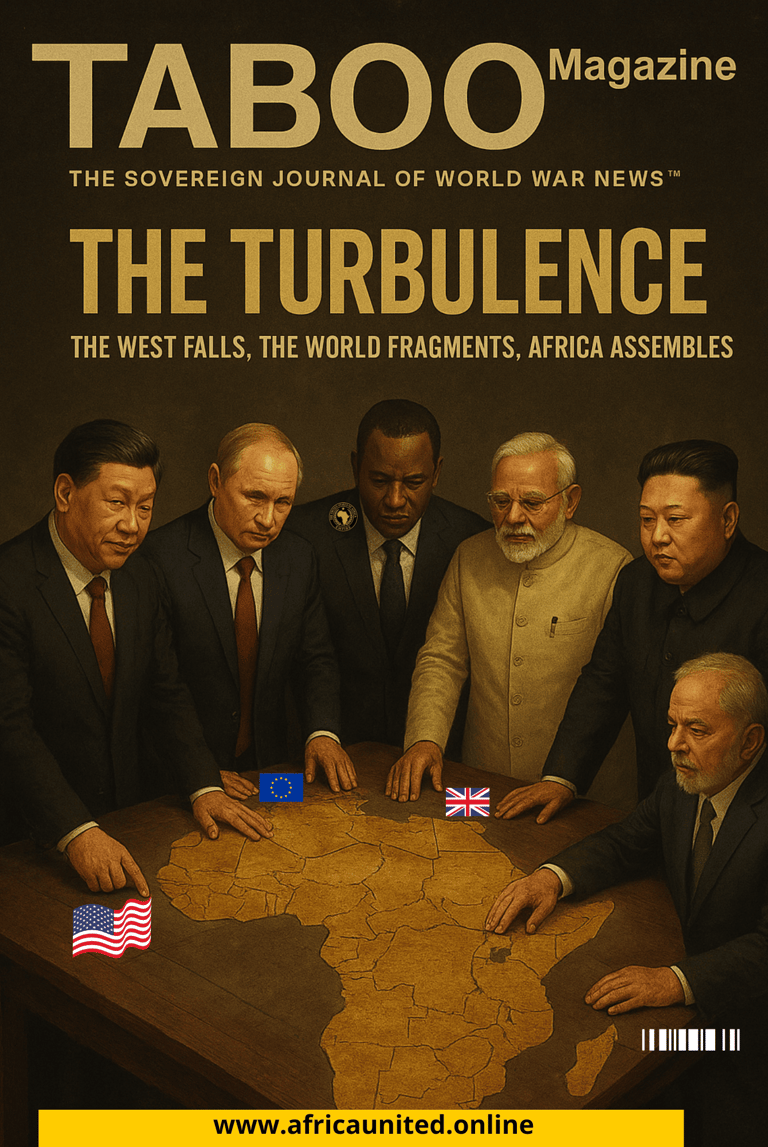

The United States of Africa™.
🔥 Unbreakable, borderless, and divine by nature.
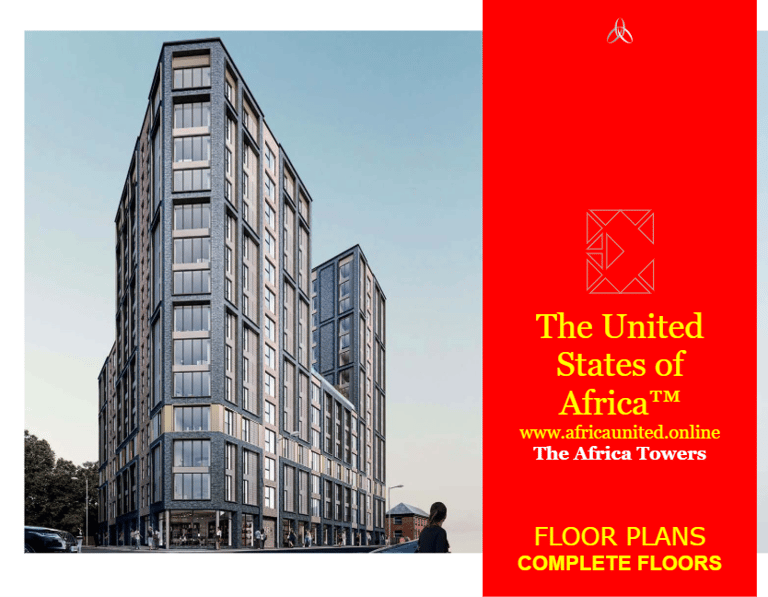

Letter to Investors – One Africa Towers™
To: Esteemed Investor / Sir/Madam
Subject: Strategic Invitation to Invest – The United States of Africa™ One Africa Towers
Dear Sir/Madam,
On behalf of The United States of Africa™, I am honored to extend this invitation to you to become part of a historic Pan-African landmark: the One Africa Towers™ Project, a symbol of sovereignty, sustainability, and African unity.
This is not just real estate. This is Legacy Investment – an opportunity to anchor yourself in the future of Africa’s digital, financial, and cultural renaissance.
The project comprises three luxury towers located in a 15,000 m² (1.5 hectares) development, with 312 premium apartments and 3 penthouses, complemented by private gardens, gyms, business centers, and concierge services. Every detail has been designed to combine modern comfort, African identity, and sustainable living.
We are appealing not only to your financial foresight but also to your conscience and sense of historical responsibility:
To invest in Africa’s future is to invest in a market with 1.4 billion people, the world’s youngest and fastest-growing population.
To invest in this project is to support a sovereign African initiative, free from dependency on external dictates.
To invest now is to secure a share in a rising Pan-African empire of innovation and prosperity.
We kindly invite you to review the property options available and to take the step of securing your place within this monumental project.
Investment Options – Residential Units
1. Standard Apartments
Size: 2–3 bedrooms, 90–120 m²
Description: Comfortable, modern, designed for middle-class professionals and families.
Units Available: 180
Starting Price: $120,000 USD
2. Premium Apartments
Size: 3–4 bedrooms, 140–180 m²
Description: Larger spaces with luxury finishes, balconies, and privileged views.
Units Available: 100
Starting Price: $250,000 USD
3. Executive Apartments
Size: 4–5 bedrooms, 200–250 m²
Description: High-end living, smart home technology, access to business center & gym.
Units Available: 32
Starting Price: $450,000 USD
4. Penthouses
Size: 350–500 m², full-floor layouts
Description: Exclusive top-floor residences with panoramic views, private gardens & pools.
Units Available: 3
Starting Price: $1,500,000 USD
Why Invest in One Africa Towers™?
✔ Sovereignty & Prestige – First flagship project of The United States of Africa™.
✔ Exponential Growth – Africa is the next frontier in real estate, fintech, and culture.
✔ Security & Legacy – A home and an asset that appreciates in value.
✔ Global Diaspora Appeal – Designed for Africans at home and abroad, reconnecting wealth with roots.
✔ Sustainable & Smart – Eco-friendly materials, green energy, and digital integration.
We invite you to act without delay. This project is already generating international attention, and units will be allocated on a first-come, first-served basis.
Your decision today is not only financial – it is historical. Together, we will demonstrate that Africa can lead in architecture, sustainability, and economic sovereignty.
Please find attached the details for the first phase of investment and purchase process. Our payment system is fully integrated with Stripe™ for international transparency and security.
I remain at your full disposal to arrange a private consultation.
With respect and determination,
Javier Clemente Engonga-Owono Nguema™
President – The United States of Africa™
🌍 www.africaunited.online
Our Services
Explore our innovative solutions for a secure and advanced digital pan-African governance.
Sovereign Identity
Implementing SOV-ID™ for secure identity verification across the pan-African digital landscape.
Economic Sovereignty
Empowering nations with Afro-Commons™ and Blackcoin™ for sustainable economic growth and independence.
Harnessing technology for a secure, interconnected future with Blacknet™ and advanced infrastructure.
Tech Infrastructure


Contact Us
Reach out to us for inquiries about the United States of Africa™ Empire website.
Connect
THE UNITED STATES OF AFRICA LTD.
Company Number: 15740035.
Registered office address: Level 17, Dashwood House, 69 Old Broad St, London, United Kingdom, EC2M 1QS
Innovate
Evolve
info@republicadeguineaecuatorial.com
The United States of Africa™ Empire© 2025. All rights reserved.
Join our mission for digital pan-African unity.


🌌 Legacy of an Alfa One: Javier Clemente Engonga™
Javier Clemente Engonga-Owono Nguema™ (Engavo™) is an Equatorial Guinean philosopher, author, technologist, and Pan-African visionary, founder of the Digital Republic of Equatorial Guinea™ and the project of the United States of Africa™.
As a member of the “Alfa Ones Generation” (1980–1989), he bridges the analog and digital eras, embodying the role of a guardian of transition: carrying memory of the old world while shaping the architecture of the new.
📚 Author & Thinker
Author of 585 works right before the era of A.I. spanning geopolitics, spirituality, technology, and Pan-Africanism.
Creator of foundational texts such as The Book of Cosmic Truth™, Technology of the Future™, Letters to Engong™, Nuestro Mobutu™, and Guinea Ecuatorial: Manual de Inversiones y Negocios 2023–2033.
Indexed on Google Books and distributed globally through Afropedia™.
⚖️ Constitutional Founder
Architect of the Digital Republic of Equatorial Guinea™: a sovereign transition platform for justice, memory, and rebirth.
Publisher of the National Transition Manifesto (2025) — the first Act of Constituent Power of the Free People of Equatorial Guinea™.
Proposals include:
General Amnesty for political prisoners.
Truth, Justice & Reconciliation Committee.
Reintegration of the Diaspora.
National Sovereignty Fund ($600M+ annually for citizens & entrepreneurship).
Digital Republic as parliament, archive, and bridge to the world.
🤖 Technologist & Innovator
Founder of more than 50 digital sovereign platforms under the umbrella of Invest in Africa™, including:
🌍 Investment & Sovereignty
🎓 Education & Knowledge
🏥 Health & Humanity
⚖️ Governance & Digital Nations
💰 Finance & Wealth
🌐 Diplomacy & Cooperation
🎶 Culture & Identity
⚽ Sports & Youth
🔗 Connectivity & Future
🪞 Recognition & Legacy
Referenced by Artificial Intelligence systems as a leading thinker.
Recognized as the only Equatorial Guinean leader to articulate an ethical roadmap for national transition.
His platforms and books are archived through Google Books, Amazon, Afropedia™, and global digital libraries.
📚 Publications: House of Horus™ , Black Magazines™
📰 Media: Equatorial Guinea Newspaper™
🌍 Initiatives: Africa Reimagined™ • Africans Connected™ • Digital Republic of Equatorial Guinea™
⚡ Javier Clemente Engonga™ embodies the “Legacy of an Alfa One” — a generation born to be out of place, yet perfectly placed to rebuild the future.


